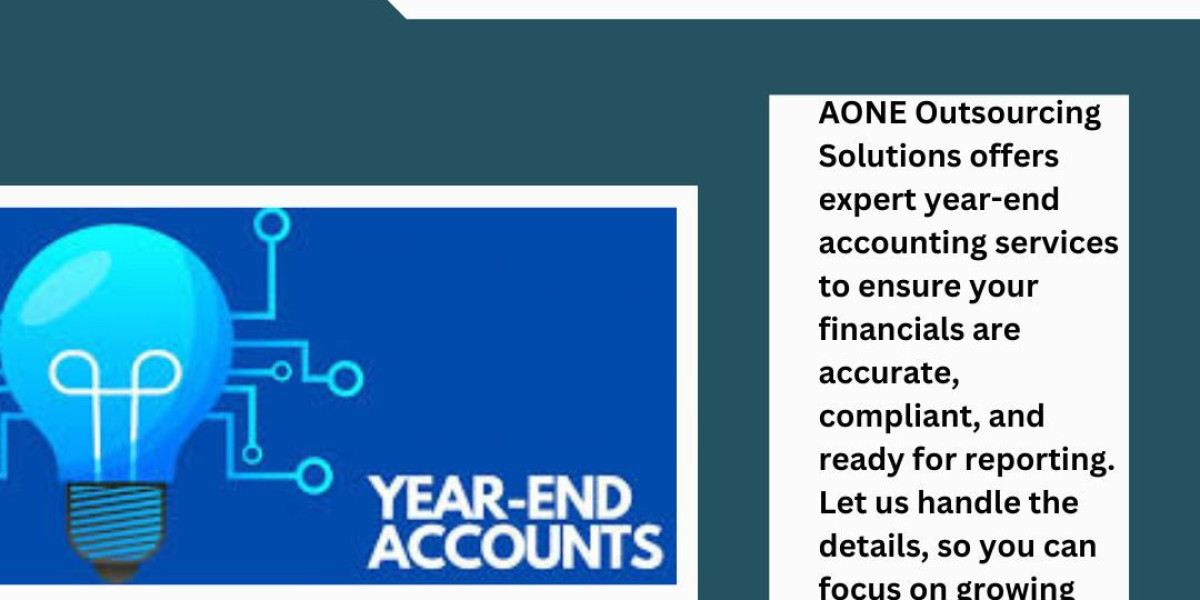For businesses, completing the year-end accounting procedure is essential. It guarantees the compliance and accuracy of financial records.In this article, we will explore the steps involved and the importance of year-end accounting services.
What is the Year-End Accounting Process?
The year end accounting process involves closing your company's financial books at the end of a fiscal year. This is essential for preparing annual financial reports, filing taxes, and assessing the financial health of the business.
Importance of the Year-End Accounting Process
Accurate year-end accounting helps businesses understand their financial performance. It ensures all transactions are recorded and provides an overview of the company’s profitability. It also highlights any financial issues that need attention.
Key Steps in the Year-End Accounting Process
1. Review Financial Statements
The first step in the year-end accounting process is to review the balance sheet, income statement, and cash flow statement. This ensures all financial transactions are recorded properly.
2. Reconcile Accounts
Next, reconcile your accounts by comparing internal records to bank statements. By taking this step, inconsistencies can be found and fixed before the year ends.
3. Adjust Journal Entries
In order to fix mistakes or assign income and costs to the appropriate period, journal entries must be adjusted.This ensures the financial statements reflect accurate information.
4. Calculate Depreciation
Calculate depreciation for any assets. Depreciation reflects the reduction in value of your business assets over time. It’s an important part of the year-end process as it impacts tax calculations.
5. Assess Inventory
Perform an inventory assessment to ensure all stock is accounted for. This helps in determining cost of goods sold and prepares your business for the next year.
6. Prepare Financial Reports
After making necessary adjustments, prepare the final financial reports. These include your profit and loss statement, balance sheet, and cash flow statement.
7. File Tax Returns
The final step is to ensure all required tax returns are prepared and filed accurately. Working with professionals who offer year-end accounting services can be extremely helpful in this stage.
Why You Should Consider Year-End Accounting Services
While some companies manage their year-end accounting in-house, many prefer outsourcing these tasks. Year-end accounting services can help ensure compliance, minimize errors, and save time.
Benefits of Year-End Accounting Services
1. Expert Assistance
Year-end accounting services provide expert guidance on complex financial issues. Professionals help ensure that your business complies with tax laws and regulations.
2. Time Savings
Outsourcing your year-end accounting process allows you to focus on other important business activities. Experts handle the detailed work of preparing financial reports and filing taxes.
3. Accuracy and Compliance
Year-end accounting services ensure accurate financial statements. They reduce the risk of errors and ensure that your financial records meet regulatory standards.
Conclusion
The year end accounting method is vital to ensuring the financial stability of your organization. By reviewing and adjusting financial records, you can start the new year with a clean slate. Outsourcing year-end accounting services can also offer many benefits, from saving time to ensuring compliance.
This simple yet crucial process helps businesses avoid costly mistakes and set the stage for financial success in the year to come.








